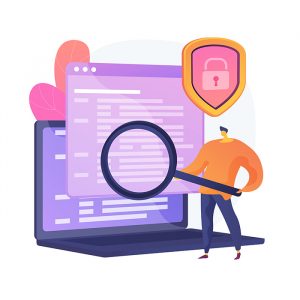The threat of cyber attacks is a pressing concern, with the global average cost of a data breach soaring to US $4.45 million in 2023, marking a 15% increase over the past three years, according to a report by IBM. This stark figure highlights the escalating financial and reputational risks organisations face, making the role of ethical hacking especially crucial in an increasingly interconnected world.
Ethical hackers serve as the first line of defence, using their expertise to simulate cyber attacks under controlled conditions. By proactively addressing security weaknesses before they can be exploited, these professionals play a key role in preventing potentially devastating data breaches, financial loss, and damage to reputation that can result from cyber attacks.
This blog explores the importance of ethical hacking, the methodologies employed by ethical hackers, and how one can pursue a career in this vital field of cyber security.
What is Ethical Hacking?
Ethical hacking, also known as penetration testing or white-hat hacking, is a practice designed to probe computer systems, networks, or web applications for security vulnerabilities. Unlike malicious hackers, who seek to exploit vulnerabilities for personal gain, ethical hackers use their skills to identify and fix these vulnerabilities before they can be exploited.
They employ their skills with permission, aiming to improve security posture before a real hacker exploits weaknesses. This preemptive strike against potential breaches is a key component of modern cyber security strategies and a method of guarding against the most dangerous cyber security threats.
Ethical hacking is governed by a strict code of ethics and legal boundaries. Ethical hackers must have explicit permission to probe systems, ensuring that their activities do not cross into illegal territory. The respect for privacy, data integrity, and the lawful use of discovered vulnerabilities are paramount.
The ethical hacker’s process and toolkit
Ethical hackers use a variety of tools and techniques mirroring those of malicious hackers but with a licence to protect.
Methodologies of Ethical Hacking

Ethical hackers employ a variety of methodologies to assess the security of information systems. These include:
- Vulnerability assessment: Scanning systems and networks to identify known vulnerabilities.
- Penetration testing: Simulating cyber attacks to evaluate the effectiveness of security measures.
- Social engineering: Testing the human element of security through phishing simulations and other tactics.
- Security auditing: Examining the adherence of systems and policies to security standards and best practices.
Process of ethical hacking
Step 1: Reconnaissance – The ethical hacker gathers as much information as possible about the target system or network using tools like WHOIS databases, search engines, and social media to collect publicly available information.
Step 2: Scanning – They identify live hosts, open ports, services running on hosts, and vulnerabilities associated with those services. Nmap for port scanning, Nessus or OpenVAS for vulnerability scanning to discover weaknesses that can be exploited.
Step 3: Gaining Access – They exploit identified vulnerabilities to gain unauthorised access to the system or network. Metasploit is widely used for exploiting vulnerabilities. Other tools include SQL injection tools for database attacks and password-cracking tools like John the Ripper or Hydra.
Step 4: Maintaining Access – Ensure continued access to the target for further exploration and analysis without being detected. Tools like backdoors and trojans are used to maintain access, while ensuring to operate stealthily to avoid detection by security systems.
Step 5: Covering Tracks – Erase evidence of the hacking process to avoid detection by system administrators or security software. Log tampering and the use of tools to clear or modify entries in system logs. Tools such as CCleaner can also be used to erase footprints.
Career opportunities and outlook
The field of ethical hacking is vast, encompassing several specialisations. The field of ethical hacking covers a wide range of specialisations, including:
- Network defence: Concentrates on safeguarding data both in transit and at rest to prevent unauthorised access and breaches.
- Digital forensics: Involves the investigation and analysis of breaches to understand how they occurred and how to prevent future incidents.
- Penetration testing: Aims to assess system vulnerabilities by simulating cyber attacks to identify weak points.
- Web application security: Focuses on securing websites and online services against cyber threats, ensuring the safety and integrity of web-based applications.
Graduates can pursue various roles, including cyber security specialists, digital forensic practitioners, penetration testers, and network security engineers. The burgeoning field promises not only a lucrative career but also the satisfaction of making the digital world a safer place.
Become an Ethical Hacker with PSB Academy
Educational programmes and certifications are crucial for nurturing the next generation of cyber security experts. Institutions like PSB Academy offer a broad spectrum of cyber security courses, catering to various interests and career paths within the field.
These courses range from introductory programmes in cyber security basics to advanced studies in specific areas like network defence, digital forensics, and ethical hacking. Such a diverse curriculum ensures that students can find a programme that matches their career aspirations and skill levels.
Among these offerings, the Diploma in Cyber Security stands out as a specialised programme. As an esteemed EC-Council Academia Partner (EC|A) in Singapore, PSB Academy combines advanced cyber security modules developed by EC-Council with essential InfoComm Technology modules, providing a comprehensive education in cyber security.
By enrolling in this programme, students have the opportunity to pursue recognised certifications from the EC-Council, the leading global certification body for cyber security, having trained and certified more than 200,000 information security professionals worldwide.
To take the first step towards becoming a cyber security expert and to learn more about our programmes, reach out to us today. Learn how you can achieve career success in cyber security with the right credentials.

 TOP
TOP